Change is multi-layered. The social field, our organisational cultures, and the individuals within them arise in mutual dependence upon each other. Integral Activist Training supports integrated transformation on all of these levels.
Progressive politics holds both a vision of a just and sustainable society and a vision of the potential of individual consciousness. Integral activist training honours the inseparability of transforming ourselves and the world. If we don’t change society the opportunities to realise individual potential are diminished. If we don’t change ourselves our efforts to change society are often undermined.
Integral Activist Training should:
• help us to analyse, strategize, and act socio-politically
• support organisations to embody the values they strive for
• offer us the inter-personal tools and methods to create effective teams
• enable us to grow as individuals, to develop our talents and creativity, deepen our self-awareness and learn to bring deep inner resources to support our struggles.
When we attend to each of these, our political struggles become a context for transforming both the world and ourselves. Integral Activist Training is holistic, transformative and participatory, as well as pro-actively inclusive, and connecting.
Holistic
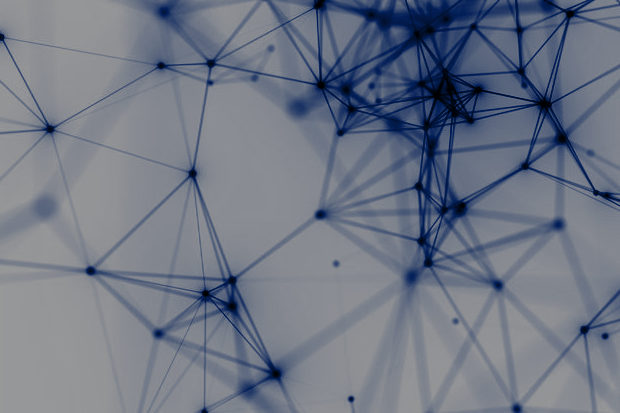 As a holistic approach is a systems approach. It recognises that the personal is nested within the inter-personal, that the inter-personal is nested within the socio-political, and that the socio-political is nested within the ecological. Each of these dimensions has its own systemic structure and yet also need to be understood as part of larger systemic wholes. Learning and effective practices for transformation need to attend to each of these layers and to the connections between them.
As a holistic approach is a systems approach. It recognises that the personal is nested within the inter-personal, that the inter-personal is nested within the socio-political, and that the socio-political is nested within the ecological. Each of these dimensions has its own systemic structure and yet also need to be understood as part of larger systemic wholes. Learning and effective practices for transformation need to attend to each of these layers and to the connections between them.
A holistic approach to learning addresses the whole person – the rational, the feeling, the sensing, and the relational dimension of who we are.
Our approach engages the intellect and helps us to explore the views we hold and how they shape our experience. It encourages clarity of thought and analysis. But, as Pascal wrote, “the heart has it reasons that reason does not know.” Despite the gains that post-enlightenment modernity has realised through championing the rational, clearly it is not enough. Unless we also engage the emotional dimension we ignore the key drivers of action and miss opportunities for deep transformation. Emotional literacy is basic to both self-awareness and working well with others. Learning how to channel anger and to develop our capacity for empathy and care are essential to good leadership and effective collaboration. Engagement with feelings is a key skill for the building the personal resilience needed to stay engaged for the long run.
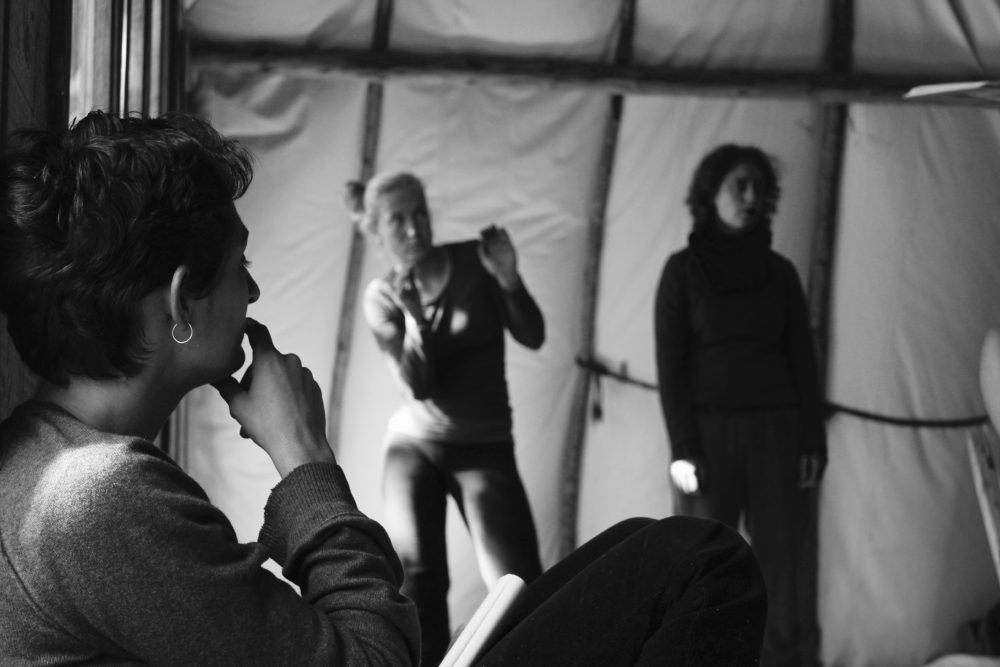 Increasingly, contemporary training methodologies integrate aspects of embodied learning. We carry our habits in the body, holding memories there and patterned responses. It is through the body and the senses that we directly engage with the world. Body-centred or somatic approaches awaken the senses, draw on the wisdom of our felt senses and help us integrate our learning in powerful ways.
Increasingly, contemporary training methodologies integrate aspects of embodied learning. We carry our habits in the body, holding memories there and patterned responses. It is through the body and the senses that we directly engage with the world. Body-centred or somatic approaches awaken the senses, draw on the wisdom of our felt senses and help us integrate our learning in powerful ways.
Lastly, we recognise that who we are is to a large extent relational. Learning about ourselves is learning about how we relate, and learning about how we relate is learning about ourselves. Much of the most transformative learning happens between us. It emerges in the field we create through our interactions – in synergies and moments where the whole reveals itself as more than the sum of its parts. To be effective in social change we need to understand these kinds of relational phenomenon, how we participate in them and how they influence us.
Transformative and Participatory
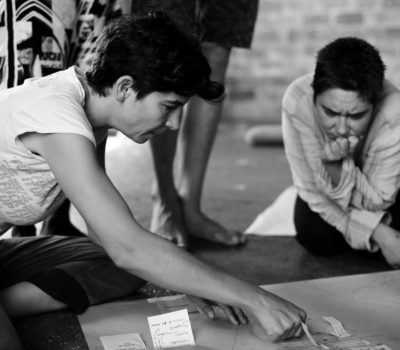 Integral Activist Training should be empowering and transformative. Our approach draws on the practices of participatory and popular education, to which we add the latest methods of experiential and immersive learning. To paraphrase Paulo Freire: Education is a practice of freedom. It is a means by which we deal critically and creatively with reality. It is a way of discovering how to participate in the transformation of our world. It should lead to action, especially collective action. Learning of this kind helps us to change our lives according to our own ideas.
Integral Activist Training should be empowering and transformative. Our approach draws on the practices of participatory and popular education, to which we add the latest methods of experiential and immersive learning. To paraphrase Paulo Freire: Education is a practice of freedom. It is a means by which we deal critically and creatively with reality. It is a way of discovering how to participate in the transformation of our world. It should lead to action, especially collective action. Learning of this kind helps us to change our lives according to our own ideas.
Our trainings enhance the capacity for self-critical reflection and help us to stay alive to on-going learning through balancing action and reflection. This is most effective when it is pursued in solidarity with others, when we recognise the struggles we share, and gain empowerment through our collective activities. We can discover the transformative power of working with others and recognise the mutually reinforcing relationship between building collective agency and personal empowerment – learning to keep these complementary through the balance of autonomy and cooperation.
Pro-actively inclusive
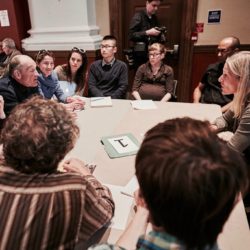 Training that builds solidarity needs to be proactively inclusive – making it easy for a wide range of people to take part and make their views heard. There is power and resilience in diversity. Inclusive learning processes pay attention to diversity and do not try to homogenise different opinions and points of view or cultural differences. This kind of approach should explore issues of anti-oppression and how we can ensure our groups and organisations embody that. Building movements of solidarity requires that we learn how to operate in pluralistic cultures of mutual respect and empowerment. Inclusive education supports us to learn skills and approaches that can enrich intersectionality and our capacity to forge transversal alliances. Differences of language and culture are approached in this way and learning designed to enable participation.
Training that builds solidarity needs to be proactively inclusive – making it easy for a wide range of people to take part and make their views heard. There is power and resilience in diversity. Inclusive learning processes pay attention to diversity and do not try to homogenise different opinions and points of view or cultural differences. This kind of approach should explore issues of anti-oppression and how we can ensure our groups and organisations embody that. Building movements of solidarity requires that we learn how to operate in pluralistic cultures of mutual respect and empowerment. Inclusive education supports us to learn skills and approaches that can enrich intersectionality and our capacity to forge transversal alliances. Differences of language and culture are approached in this way and learning designed to enable participation.
Connecting
It is commonplace to describe our modern predicament as one of alienation. Many of the ways contemporary life is structured entrenches division. Healing division and restoring connection is key to both personal and collective empowerment. We explore this by attending to three dimensions of connection: namely the connections between people and people, people and themselves, and between people and nature.
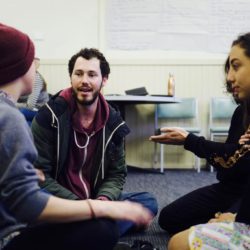 Connecting People to People concerns the social and interpersonal dimension. It is about developing skills to work together. It is about the way we embody our values between us in our work to restore collective agency. It is about developing fresh and responsive forms of political organising – that can support pluralistic and yet transversal movements which deeply value what we have in common without denying how different we are. It is about bring forth through our work together a ‘responsive social field’ in which people can flourish. And importantly it concerns how we create contexts for collaboration which enable us to transform ourselves as we work to transform the world.
Connecting People to People concerns the social and interpersonal dimension. It is about developing skills to work together. It is about the way we embody our values between us in our work to restore collective agency. It is about developing fresh and responsive forms of political organising – that can support pluralistic and yet transversal movements which deeply value what we have in common without denying how different we are. It is about bring forth through our work together a ‘responsive social field’ in which people can flourish. And importantly it concerns how we create contexts for collaboration which enable us to transform ourselves as we work to transform the world.
Connecting People to Themselves is about the inner personal work we can do to empower ourselves. Working with others is challenging. To resource it we need to know ourselves deeply. We need tools that help us develop psychological integration and responsive awareness. We need to develop the inner resource of emotional resilience that can support long term engagement with the immense challenges we face. Radical politics has always been about the transformation of consciousness and the formation of new subjects or individuals. In the past this has often been achieved through shifts in views and ideology. Today we can work directly with the quality of the mind and heart to realise a cognitive vitality that avoids the pitfalls of ideological closure, and helps us to keep learning as we go.
 Connecting People to Nature: Vandana Shiva suggested that our ecological identity is perhaps our most fundamental identity. Modern life often hides this from us. Through practises that help us restore our connection with the non-human we can find an enriched sense of who we are, woven into the web of life. This dimension of connection can nourish us, enhancing our resilience and motivation. Further to this, connecting with nature involves the cultivation of an ecological intelligence. Nature, after all, is a teacher. Ecological and systems thinking can inform our approaches to social change. They can help us to live and organise in a world of systems so that ecological intelligence supports our organisational development, our strategizing and our movement building.
Connecting People to Nature: Vandana Shiva suggested that our ecological identity is perhaps our most fundamental identity. Modern life often hides this from us. Through practises that help us restore our connection with the non-human we can find an enriched sense of who we are, woven into the web of life. This dimension of connection can nourish us, enhancing our resilience and motivation. Further to this, connecting with nature involves the cultivation of an ecological intelligence. Nature, after all, is a teacher. Ecological and systems thinking can inform our approaches to social change. They can help us to live and organise in a world of systems so that ecological intelligence supports our organisational development, our strategizing and our movement building.